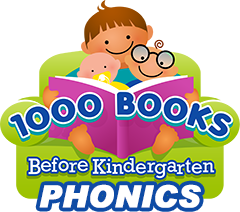A subgroup of the National Reading Panel review research concerning using phonemic awareness instruction for teaching children to read. The panel noted that phonemic awareness and letter knowledge are the two best school-entry predictors of how well children will learn to read during their first 2 years in school.
The report sought to answer several questions:
The purpose of this report of the National Reading Panel (NRP) was to examine the scientific evidence relevant to the impact of phonemic awareness instruction on reading and spelling development. In the analyses conducted, the NRP sought answers to questions such as the following: Is phonemic awareness instruction effective in helping children learn to read? Under what circumstances and for which children is it most effective? Were studies showing its effectiveness designed appropriately to yield scientifically valid findings? What does a careful analysis of the findings reveal? How applicable are these findings to classroom practice?
The report summarizing the panel’s findings found that teaching children to manipulate phonemes in words was highly effective in learning to read. The panel found that:
Teaching children to manipulate phonemes using letters produced bigger effects than teaching without letters. Blending and segmenting instruction exerted a significantly larger effect on reading development than did multiple-skill instruction. Small-group instruction produced larger effect sizes on reading than individual instruction or classroom instruction, albeit in an unanticipated fashion. Specifically, the longer the training program, the smaller the effect size.
The panel also found that both classroom and computer learning formats in teaching phonemic awareness were effective, including for at-risk readers:
Significant improvement in reading skills following PA instruction was observed both in studies involving classroom teachers and in computer formats, but the degree of transfer was less than that achieved in experimentally controlled studies. Large effect sizes were obtained in studies of at-risk readers, with moderate effect sizes obtained for disabled and normally developing readers.
The panel report concluded that phonemic awareness can be taught and that it is effective under a variety of teaching conditions and with a variety of learners.
The 1000 Books Before Kindergarten Phonics program offers a unique phonics course that includes a substantial amount of phonemic awareness teaching.

